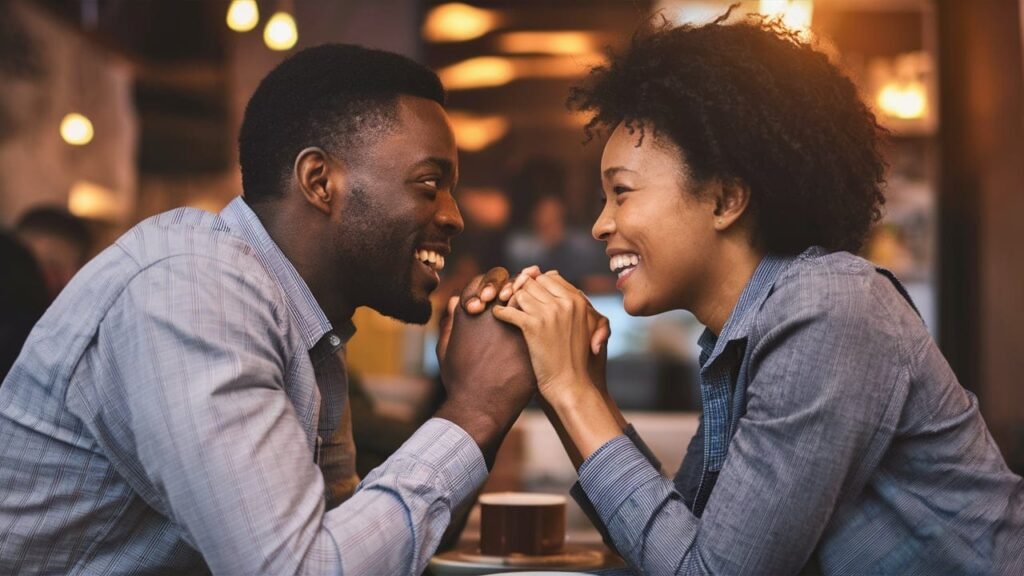Share This Article
Sometimes we meet someone and it feels like we’ve known them for years. Do you know that feeling? Maybe you got it from a stranger at a festival, a colleague from another department, or someone sitting next to you on a plane. Or if you were lucky, it happened on a date. You can’t explain what exactly happened, but you knew it within minutes of the conversation: we just clicked.
Everything the other person said to you matched your thoughts. You were on the same page. The conversations therefore flowed like running water from a tap. Keeping the conversation going was effortless. There was no awkward silence and despite the fact that you had only just met, you were able to finish each other’s sentences. How is this possible, where does this click come from and how can you recognize it?
These are the questions that researchers at Dartmouth College (US) have been pondering recently. They decided to investigate it to find out what exactly the difference is between people who do and do not have a click. The results have been published in the journal Proceedings of the National Academy of Sciences .
ALSO READ: 4 Reasons To Indicate Your Limits

How to recognize the click
When you’re on the same page with someone in a conversation, you feel like you’re clicking. But what exactly is that click? According to the study’s findings, it has to do with “response times” in a conversation, or the amount of time between when one person stops talking and the other starts.
Using three experiments, the researchers found that the faster people respond to each other, the more connected they feel. In the first experiment, 66 participants had a conversation with a stranger. Afterwards, they were allowed to watch the conversation on video and indicate how connected they felt during the conversation. After analyzing the responses, the researchers found that the participants were more aligned during the conversations with faster response times.
“It’s well known that on average, there’s about a quarter of a second between turns in a conversation,” said senior author Thalia Wheatley, a professor of human relations at Dartmouth College. “When people feel like they can almost finish each other’s sentences, they close that 250-millisecond gap, and that’s when people click.”
ALSO READ: Why Self-love Starts With Recognizing Your Limits
Even with good friends
To determine whether this finding also applied to close friends , participants from the first experiment and their close friends were invited to have conversations in a second study. Although close friends generally rated their conversations more favorably than conversations with strangers, the response time data were similar: Faster response times in conversations with friends also indicated better chemistry.
In the third experiment, the researchers had outside observers determine whether two people clicked. These participants were allowed to listen to audio clips of conversations in which the response times had been manipulated. Some response times were slowed down, others were sped up, and for the sake of control, some clips were at their original speed. This third test also shows that a faster response time can indicate that two people click .
The outsiders thought that two speakers were more connected when the response time in their conversations was faster. Because these audio clips were otherwise identical except for the response times, this study shows that the time it takes someone to respond is a powerful signal of social connection.
P.S. Are you already following Gistinger.com on Facebook , Instagram and Twitter?

